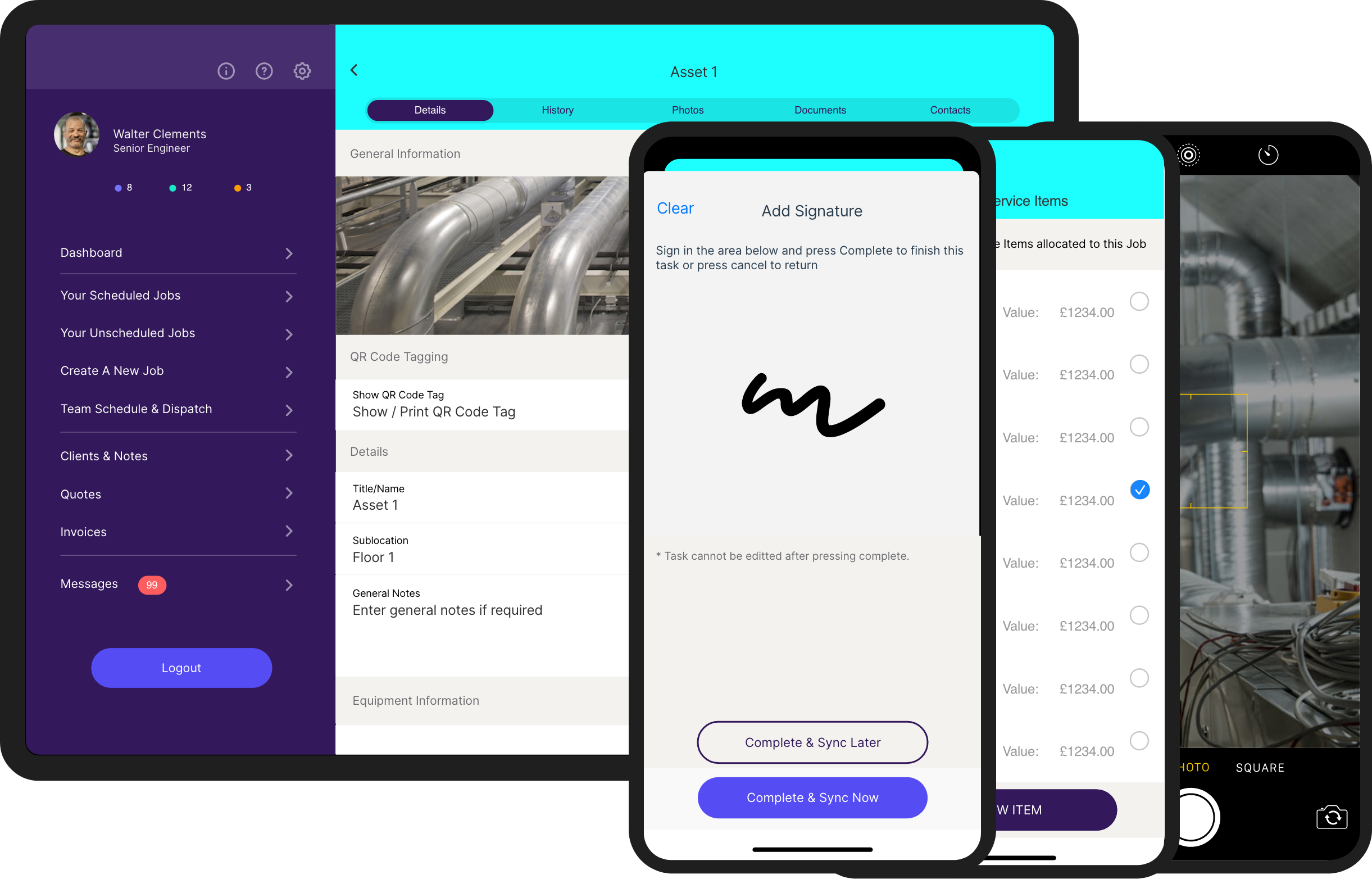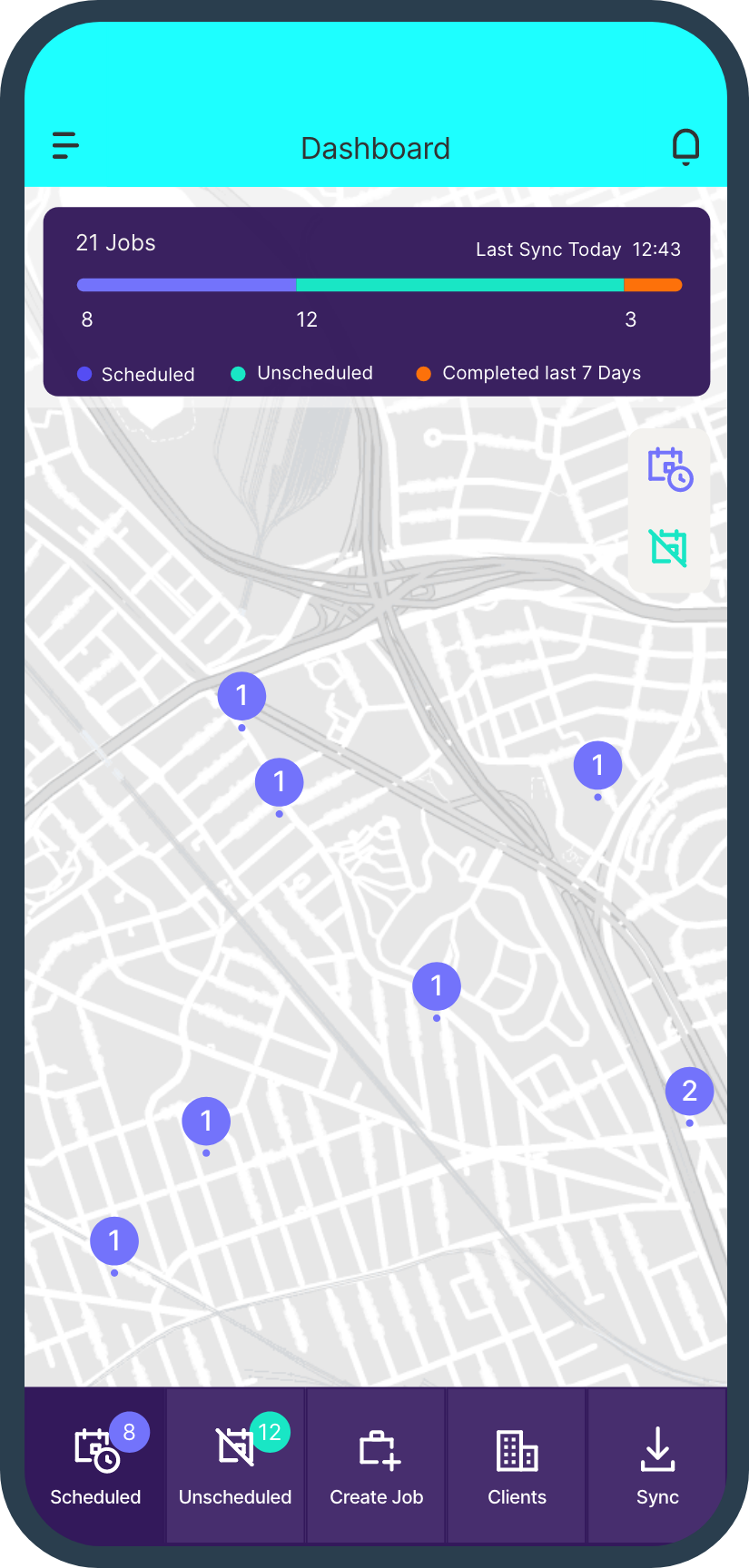The introduction of automation into field service trades marks a pivotal moment in the evolution of traditional service operations. As technology continues to advance, the integration of automated systems is reshaping how trades approach their daily tasks. What was once a domain primarily reliant on manual processes is now undergoing a profound transformation.
Automation is not merely a convenience but a strategic imperative, streamlining workflows, optimizing resource allocation, and providing invaluable insights into operational efficiency. This paradigm shift signifies a departure from conventional practices toward a future where field service trades are empowered with innovative tools, such as field service software, capable of elevating their capabilities, reducing manual burdens, and ultimately enhancing overall business performance. As organizations embrace this wave of change, the potential for increased productivity, improved customer experiences, and heightened profitability becomes an exciting reality within the realm of field service trades.
What is the definition of field service automation?
In an era characterized by rapid technological advancements and the relentless pursuit of operational excellence, organizations are increasingly turning to automation to transform their service delivery processes. Field service operations, which involve on-site support, maintenance, and repairs, are no exception to this trend. At its core, FSA harnesses the power of technology to streamline workflows, enhance efficiency, and elevate the overall quality of service provided to customers.
Field service automation encompasses a diverse range of technologies, tools, and strategies that collectively redefine the landscape of on-site service operations. From intelligent scheduling and dispatching to predictive maintenance and customer self-service portals, FSA leverages automation to drive improvements at every stage of the field service lifecycle. As organizations navigate the complexities of delivering services in diverse and dynamic environments, understanding what defines field service automation becomes pivotal in unlocking its full potential.
This guide delves into the fundamental aspects that define field service automation, exploring the key components, technologies, and benefits that contribute to its transformative impact on service-oriented industries. By examining the core elements of FSA, businesses can gain valuable insights into how to harness automation to optimize their field service operations, deliver unparalleled customer experiences, and stay ahead in an increasingly competitive and technologically-driven business landscape.
Automation unlocks operational excellence and enhances field service delivery
Automation plays a pivotal role in revolutionizing field service delivery, bringing about transformative improvements across various aspects of operations. One of the key benefits is the optimization of scheduling and dispatching processes. Automated systems analyze data in real-time, ensuring that the right technician, equipped with the necessary skills and tools, is dispatched to the right location promptly. This not only reduces response times but also enhances overall efficiency.
Moreover, automation contributes to predictive maintenance, utilizing data analytics and machine learning algorithms to foresee potential equipment issues before they occur. This proactive approach minimizes downtime, increases the lifespan of assets, and ultimately leads to higher customer satisfaction. Field service automation also facilitates streamlined communication, enabling technicians to access crucial information on-the-go through mobile devices. This quick and seamless access to data improves decision-making and problem resolution, fostering a more responsive and agile field service team.
Furthermore, by introducing customer self-service portals and automated notifications, automation empowers clients to schedule appointments, track service requests, and access information independently. This not only enhances customer satisfaction but also reduces the administrative load on field service teams. In essence, the integration of automation in field service delivery not only optimizes operational processes but also elevates the overall quality of service, creating a more efficient, proactive, and customer-centric approach to field service operations.
5 Benefits of Automating Field Service Operations
1. Enhanced Efficiency
Field service business automation streamlines and optimizes workflows, reducing the reliance on manual processes. Automated scheduling, dispatching, and data entry ensure that tasks are executed with precision and speed, leading to improved operational efficiency and quicker service delivery.
2. Cost Savings
Automation helps cut operational costs by minimizing the need for manual labor in repetitive and time-consuming tasks. By optimizing resource allocation and reducing human error, businesses can achieve significant cost savings over time, allowing for more strategic use of financial resources.
3. Improved Accuracy and Consistency
Automation eliminates the risk of human error in critical processes such as inventory management, scheduling, and data entry. This results in improved accuracy and consistency, reducing the likelihood of mistakes and ensuring that field service operations run smoothly.
4. Enhanced Customer Experiences
Automation contributes to superior customer experiences by providing real-time updates, automated notifications, and self-service portals. Customers can stay informed throughout the service process, leading to increased satisfaction and fostering stronger, long-term relationships with clients.
5. Data-Driven Decision Making
Field service business automation generates valuable data insights through analytics. This data can be leveraged to make informed decisions, identify trends, and optimize overall performance. Predictive maintenance, enabled by automation, allows businesses to proactively address equipment issues, reducing downtime and enhancing asset longevity.
In summary, the advantages of field service business automation include heightened efficiency, cost savings, improved accuracy, enhanced customer experiences, and the ability to make data-driven decisions. Embracing automation positions field service businesses for increased competitiveness and sustained success in a rapidly evolving business environment.
Anticipating the future: Navigating the Path to Field Service Automation
As industries evolve, preparing for the future involves embracing technological advancements that can revolutionize traditional practices, it is no different in the field service inustry. One crucial step toward future-proofing operations is the integration of field service management software. This cutting-edge technology is designed to streamline and optimize processes, paving the way for increased efficiency and reduced downtime.
The first step in preparing for this transformative shift is to conduct a comprehensive assessment of existing workflows. Identify repetitive and time-consuming tasks that can be automated, such as scheduling, asset tracking, and preventive maintenance planning. Understanding the specific needs and challenges of your operations lays the groundwork for successful implementation.
Once the assessment is complete, the next step is to explore available field service management software solutions. Look for platforms that align with your organization’s requirements, scalability, and compatibility with existing systems. Choosing a user-friendly software solution that accommodates various maintenance tasks ensures a smoother transition and higher adoption rates among your teams.
Training and education play a crucial role in preparing personnel for the introduction of software. Offering comprehensive training programs ensures that staff members are proficient in utilizing the new technology and can maximize its potential. Fostering a culture of adaptability and continuous learning is essential for long-term success.
In parallel, establishing a clear implementation plan is imperative. Define key milestones, allocate resources effectively, and set realistic timelines for the adoption of software. This proactive approach helps mitigate potential challenges during the transition and ensures a seamless integration into daily operations.
Moreover, collaboration and communication are vital components of successful implementation. Engage with teams, gather feedback, and address concerns to foster a sense of ownership and enthusiasm for the upcoming changes. Encouraging open dialogue contributes to a smoother transition and promotes a positive attitude towards new technologies.
As field service organizations prepare for the future, the adoption of automation emerges as a strategic initiative to stay competitive and efficient in a rapidly changing landscape. By taking these steps – assessing current workflows, selecting the right software, providing adequate training, establishing a clear implementation plan, and fostering open communication – businesses can position themselves at the forefront of innovation, ensuring a seamless transition into a more automated and technologically advanced future for their field service operations.
The Transformative Influence of Klipboard in Field Service Operations
Klipboard emerges as a powerful catalyst in reshaping the landscape of field service operations, offering a suite of tools and features designed to enhance efficiency, streamline workflows, and elevate overall service quality.
Our innovative platform empowers field service professionals with real-time access to critical information, enabling them to seamlessly manage tasks, schedules, and customer interactions. The power of Klipboard lies in its intuitive design, providing a user-friendly interface that simplifies complex processes, such as work order management and data collection.
By leveraging Klipboard, organizations can experience automation, heightened productivity, improved communication, and a more responsive approach to customer needs. This comprehensive solution not only streamlines and automates day-to-day operations but also positions field service teams for enhanced collaboration and sustained success in an ever-evolving business landscape.



